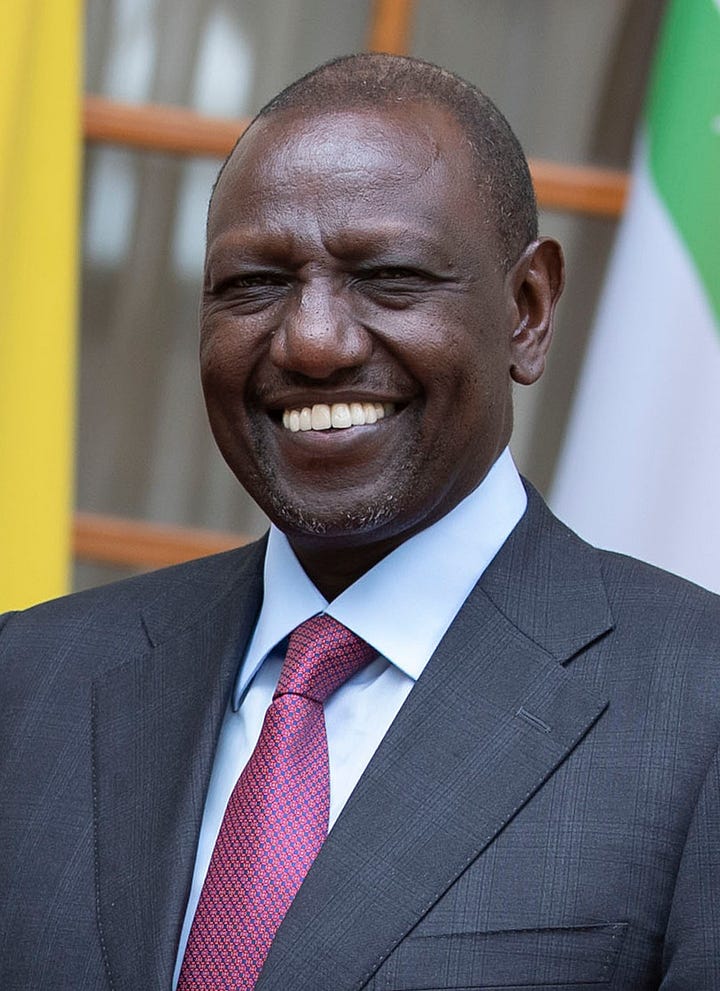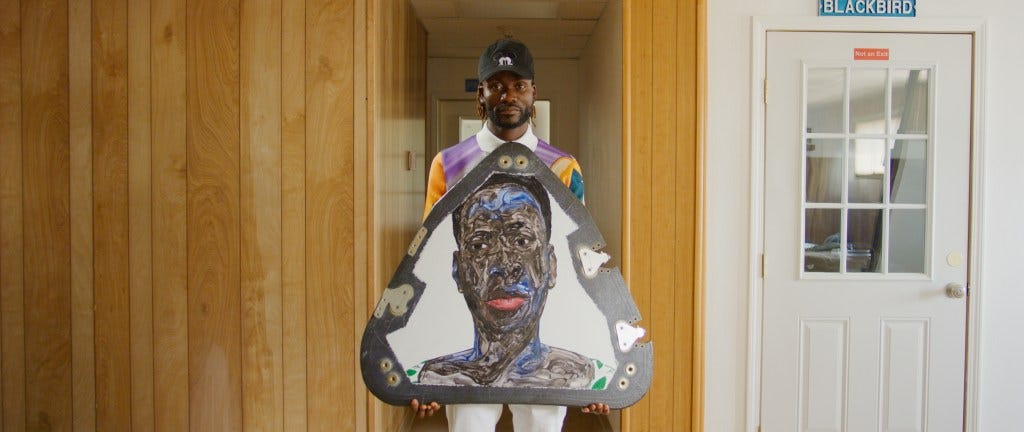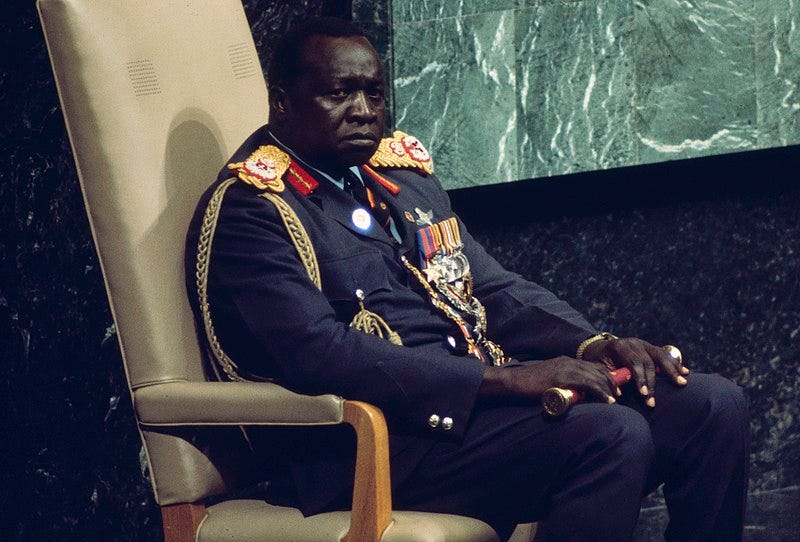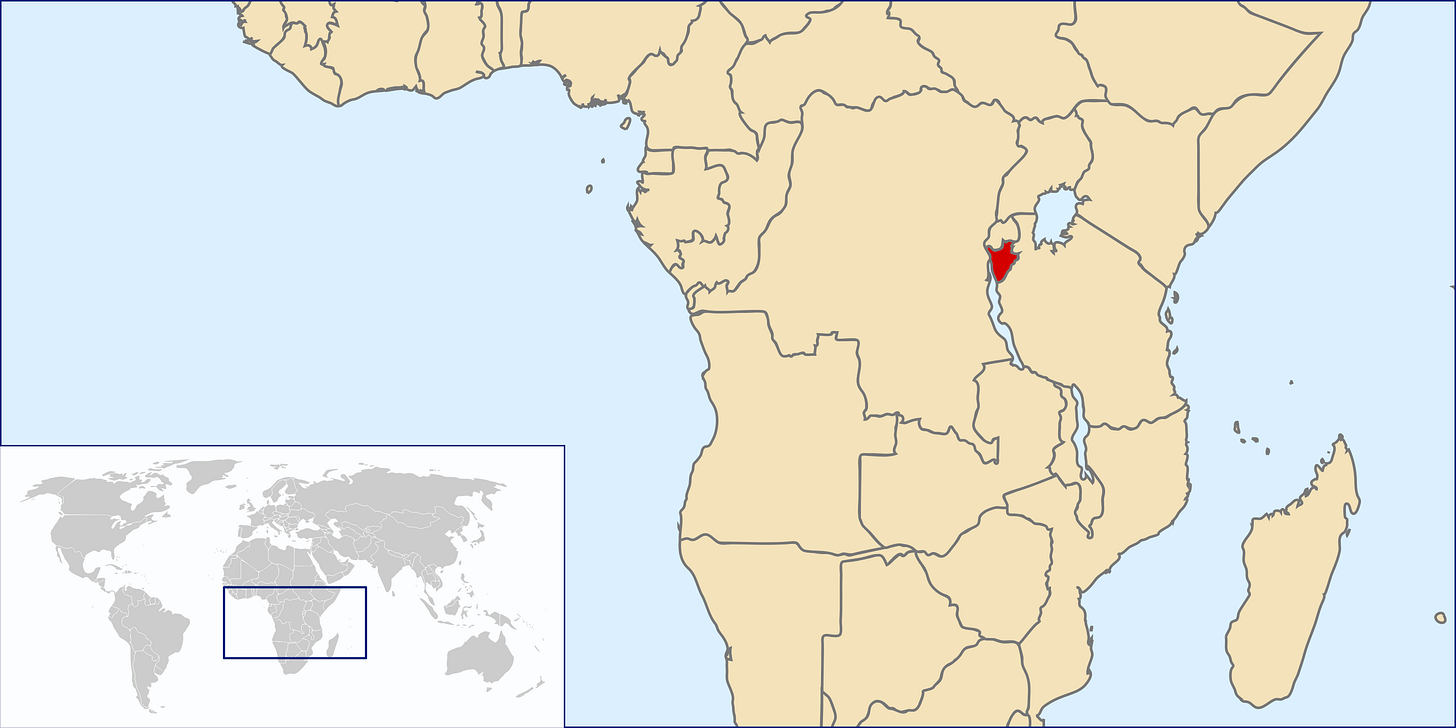🔅 Can We Forgive Idi Amin? Some Ugandans Say Yes, Others Say No
Plus: Ruto vs. Malema, The Ghanaian who displayed his art in outer space, And much more...
Photo of the day
Djibouti

Markets:
🔴 Nigerian SE: 70,849.38 (-0.34%)
🟢 Johannesburg SE: 71,393.30 (+0.52%)
— Ghana SE: 3,195.46 (0.00%)
🟢 Nairobi SE: 88.95 (+0.71%)
🔴 US S&P 500: 4,398.71 (-0.37%)
🟢 Shanghai Composite: 3,046.53 (+0.25%)
China to Zambia's Creditors: Let's Share the Burden, Shall We? | Zambia's in a bit of a pickle with its debt restructuring. China, the IMF and other official creditors want everyone to pitch in. They aren't too keen on the deal Zambia struck with overseas bondholders. Basically, the bondholders would get more money back than the official creditors.
*Data accurate as of the close of markets across the continent
Brief & Bright: Africa's Top Five
Can We Forgive Idi Amin? Some Ugandans Say Yes, Others Say No
It’s been two decades since Idi Amin, one of Africa’s most notorious leaders, kicked the bucket. And now, some people in Uganda are wondering: can we forgive him? While most Ugandans see Amin as a ruthless dictator, there are some who argue that he wasn’t all bad. Like, sure, up to 500,000 people disappeared under his rule, but he also supported local industry, music and sports, African solidarity, and even acquired some major national assets home and away, like a railway service and a national carrier. But not everyone is on board with the idea of remembering Amin in a positive light—some people are still haunted by his brutal time in power and say he should be left in the past. And recently, when a request for an Idi Amin Memorial Institute was rejected by the current president, Yoweri Museveni, some folks pointed out that Museveni isn’t exactly squeaky clean himself. After all, he also came to power through force and has been accused of corruption, police brutality, and silencing his opponents. Looks like this debate is far from over.
Battle of the Speeches: Ruto vs. Malema


In a country far, far away (or maybe not, if you're reading this in Kenya), two men gave speeches on the same day, just a few hours apart. One was President William Ruto, the other was South African opposition leader Julius Malema. While Ruto's parliamentary speech was met with tired yawns, Malema's fiery words at a university nearby had the crowd cheering. His scathing criticism of Ruto's broken election promises and political moves hit a nerve with his audience. It's perhaps no surprise that his speech went viral on social media, with Kenyans feeling a sense of solidarity with Malema's words against perceived oppression and injustice, particularly since they come from a leader who knows a thing or two about protests. Plus, at 42 years old, Malema is closer in age to the young voters of Kenya than Ruto, who is 58, and certainly much closer in age than 78-year-old opposition leader Raila Odinga. Some even see Malema as a symbol of the opposition leader they wish they had, with his boldness, fearlessness, and willingness to speak his mind. Malema touched a nerve with Kenyans, and they're not afraid to say it.
From Rags to Riches: Meet the Artist Who's Taking the World by Storm

Amoako Boafo's story is like something out of a movie. Growing up in poverty in Ghana, he used to compete with his friends to see who could draw the best superheroes. Now, his portraits of black subjects can sell for millions and his work has even been displayed in space on Jeff Bezos's rocket ship. But Boafo is a humble guy, and he's quick to credit his fellow West African artists for their talent and support. He didn't even consider art as a career until someone offered to pay his tuition fees. Then, in a true Cinderella story, his work was discovered on Instagram by Kehinde Wiley, the artist known for painting Barack Obama's portrait. Boafo's success and support has opened doors for other artists in his community, and he's grateful for the opportunity to give back. But don't worry, he's not letting the fame and fortune get to his head. He still remembers his days of selling paintings for just one-hundred dollars or so in Ghana (he now commands millions).
South Africa Sends in Troops to Tackle Illegal Mining
South African President Cyril Ramaphosa is pulling out all the stops to combat illegal mining in the country. He's authorized the deployment of 3,300 army personnel under "Operation Prosper," which is expected to cost $26 million. But when it comes to maintaining law and order and protecting the economy (and those sweet export earnings), money is no object. The army will work with the police to stop illegal mining activities across all provinces for six months. Illegal mining has cost the country billions of dollars and has made it less attractive to investors.
Burkina Faso: 100 Civilians Killed in Massacre
Around 100 civilians, including women and children, were killed in a brutal attack on a village in Burkina Faso. The US and the EU foreign policy chief Josep Borrell have condemned the attack, but it's not clear who's behind it. The country is dealing with a jihadist insurgency that has spread from neighboring Mali, and the military government is trying to force civilians to join the fight. The situation is so bad that a quarter of the country's schools have been forced to close. And it seems like no one is safe, not even the village of Zaongo, which was spared by the terrorists until now. The army took control last year promising to stop the violence, but if anything, things have only gotten worse. Last year, over 1,400 civilians were killed, and this year, the death toll is already at 8,000.
Food for Thought
"A great leader is an ordinary person with extraordinary wisdom."
— Malawian Proverb






